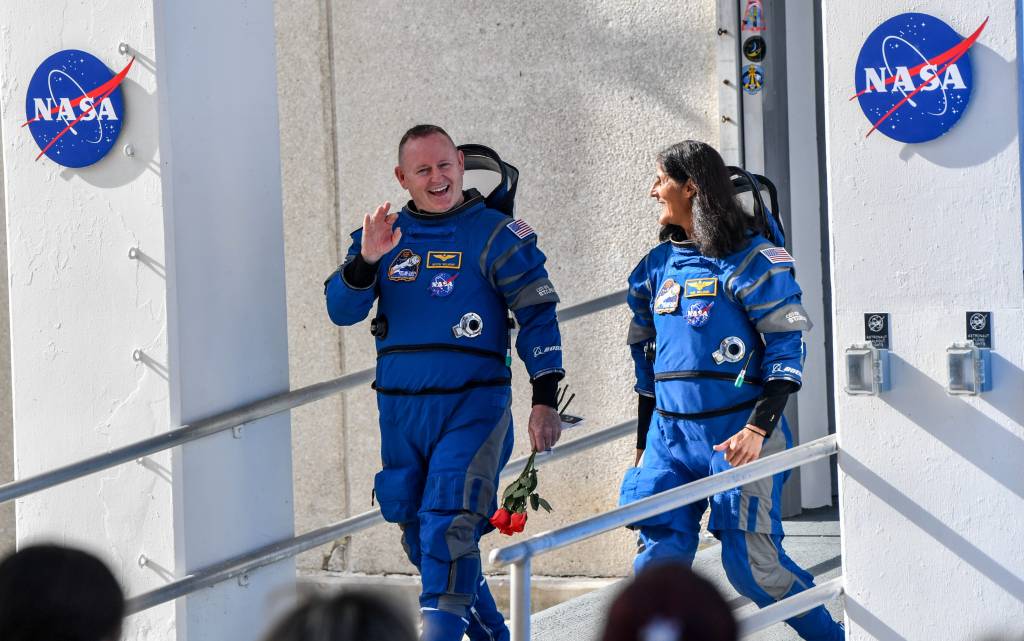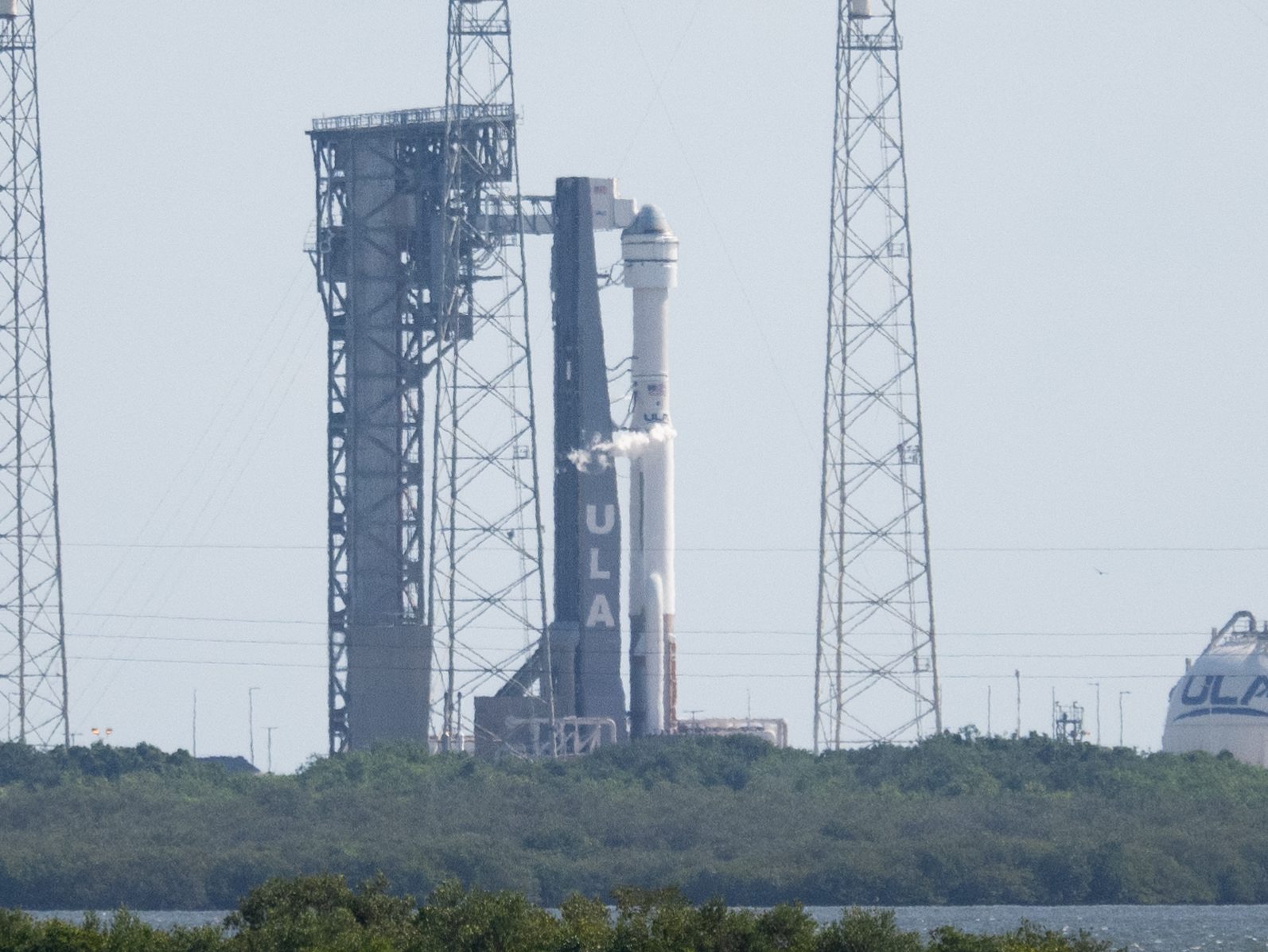Boeing’s first manned space flight halted less than four minutes before takeoff with astronauts inside Starliner capsule
Boeing’s historic first astronaut flight was sidelined by a last-minute problem Saturday — a blow for the aerospace giant as it tries to compete with Elon Musk’s more successful Space X fleet.
NASA astronauts Barry “Butch” Wilmore, 61, and Sunita “Suni” Williams, 58, had been in their seats aboard the Starliner capsule before the launch was scrubbed with just three minutes and 50 seconds to spare.
Ground personnel helped the two out of the capsule after the mission was scrapped.

An automatic abort command was triggered by a ground system computer that controls the launch, and the countdown clock was paused, according to mission officials.
It wasn’t immediately clear what caused the problem, but CBS News reported that NASA said “the GLS (Ground Launch Sequencer) did not load the proper configuration files when the countdown resumed.”
Teams will investigate the ground launch sequencer Saturday evening, once the rocket has been drained of fuel, Tory Bruno, president and CEO of United Launch Alliance, which built the Atlas V rocket Starliner sits atop, said at NASA’s afternoon press conference.
The ground launch sequencer is the triple-redundant computer system that tells the rocket to launch. It’s what triggered the automatic hold that prevented the launch.

All three computers have to agree for the launch to occur, Bruno explained.
He said it’s possible teams could identify the problem tonight, fix it and try for a second launch Sunday, when the next available window would be about noon local time.
There will be two more chances on Wednesday and Thursday if needed.
If it doesn’t launch by any of those dates, the flight will be significantly delayed because engineers will need time to replace batteries in the rocket’s self-destruct system that will reach their “use by” date, according to CBS.
The launch was previously delayed in May due to leak checks and rocket repairs.
NASA will hold a press conference Saturday afternoon to address the aborted launch.
With Post wires







